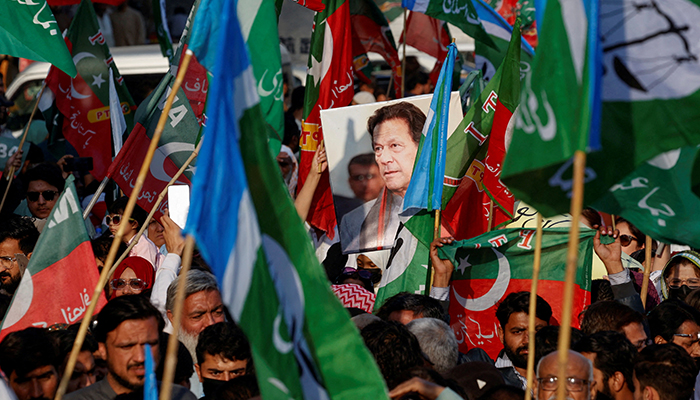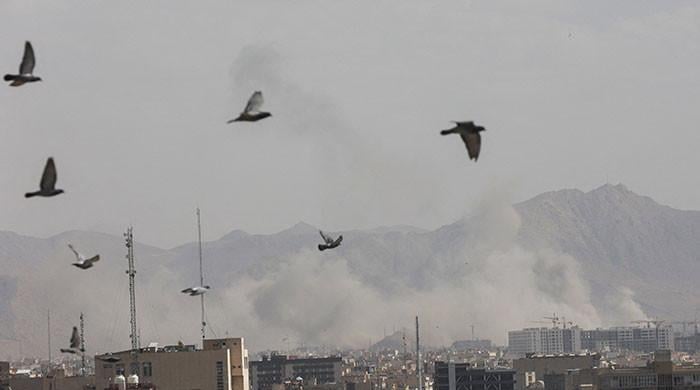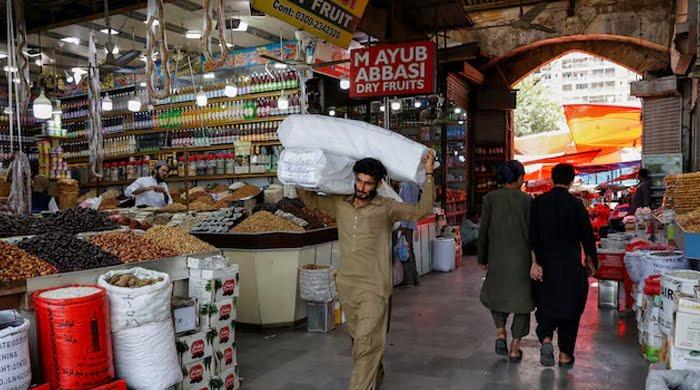Citizens' resilience shakes Pakistani politics to its core
February 8 elections provided a platform for the people of Pakistan to make their voices heard
February 12, 2024

In a nation grappling with political turmoil, one man has once again emerged as a symbol of unwavering determination and resilience. Imran Khan, despite facing numerous challenges, refuses to be silenced or sidelined in Pakistani politics. From imprisonment to attempts to discredit him, Khan’s unwavering commitment to his cause has kept him at the forefront of the nation’s political landscape.
February 8 elections provided a platform for the people of Pakistan to make their voices heard. The sight of long queues stretching through lanes, filled with citizens of all ages patiently waiting to cast their ballots, was a powerful testament to their belief in the democratic process. Even amidst concerns of potential election theft, the people remained steadfast in their commitment to exercising their right to vote.
Khan’s party, the PTI, emerged triumphant, securing more seats across the nation than all others. In Karachi, PTI independents as per Form 45, claimed victory in 17 constituencies. But as usual, results have been manipulated and manufactured otherwise.
The overall situation in Sindh raises serious questions about the ruling party’s continued success in the elections. The people of Sindh have endured years of mismanagement, corruption, and a lack of progress under the PPP. The prevalence of rigged systems and the seemingly untouchable Asif Zardari have left the province in a state of despair. It almost seems like Sindh is some alien land for those calling the shots and has been contracted out to PPP.
Balochistan has also seen its fair share of election rigging. As usual, those selected were elected. The others, well, they wait their turn till next time and play “there cards” right.
The people of Khyber Pakhtoonkhwa are special. They not only came out in massive numbers like the rest of the country, but also showed the muscle to guard their votes and their mandate. It is miraculous that a province that does not forgive the mistakes of those that have governed them and has never re-elected the incumbents has re-elected the same party consecutively for a third time.
Punjab as always, was the main battlefield and the province rose to the occasion like never before in their history. The wave swept across the province tossing theories of every political pundit out of the window. For the decision-makers, this is where the challenge lies.
It is now out of their control and therefore, the caretakers have resorted to the same old draconian tactics. First, try to buy the loyalties of the PTI independent winners, and if that fails, arrest them, harass their families, and force them to change their loyalties from Khan’s PTI.
I personally spoke to a few “opinion makers” in Lahore. A few of them were from the lot that was pleased or even instrumental in the 2022 vote of no confidence against Khan and the PTI government. Even they were shocked to witness what had happened and are now disappointed with the way the state has handled the political situation post-Feb 8.
The aftermath of the elections has not only captivated the attention of the nation but also garnered international concern. The transparency and fairness of the electoral process have been called into question by the US State Department, members of Congress, UK legislators, and the international media. Even international lenders like the IMF, upon whom Pakistan relies for economic stability, have expressed apprehensions about the prevailing circumstances.
Pakistan yet again stands at a critical juncture, teetering on the edge of economic collapse and social unrest. It is imperative for decision-makers to recognise the historical consequences of pursuing personal vendettas, revenge, and arrogance in decision-making.
Pakistan belongs to every individual within its borders. It is through unity, understanding, and collaboration that the nation can navigate its way towards progress, prosperity, and economic stability.
Instead of taking inspiration from Khan’s resilience and the way people have stood with him and for him, those who won fair and square are being harassed, arrested, and thrown in jails. Winning candidates yet once again are hiding from their homes with their families are under threat.
They are holding on to the Form 45s from the polling stations in the constituencies, waiting for the judiciary to decide their fate and maybe the fate of our great country.
In times of financial distress, one effective strategy to rescue a debt-ridden company is to convert that debt into equity. By transforming debtors into shareholders and partners, the company can move forward, raise capital, and rebuild based on its unique selling proposition (USP).
In Pakistan's case, our USP lies in our young population. Rather than viewing them as a liability, embrace their potential by involving them as shareholders.
The simplest way to achieve this is by recognising and accepting their will. Khan’s approach serves as a valuable lesson. By channeling the energy and enthusiasm of the youth towards nation-building, we can unlock their potential and drive progress.
But the first step is to acknowledge and embrace their mandate.
In this critical moment, those sitting in power must prioritise the nation’s well-being over personal agendas. In the meantime, the fate of our beloved country hangs in balance.
The writer is a former federal minister and an ex-leader of the PTI.
Disclaimer: The viewpoints expressed in this piece are the writer's own and don't necessarily reflect Geo.tv's editorial policy.











